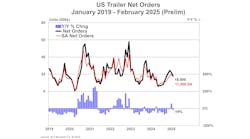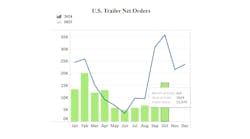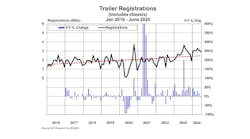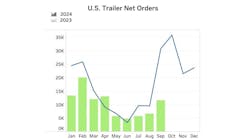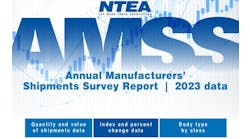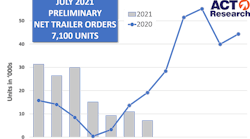Preliminary reports show trailer OEMs posted 7,100 net orders in July, roughly two-thirds of June’s volume and 63% less than the same month last year, according to ACT Research.
“Trailer orders remained low for the fourth consecutive month in July. The issue is certainly not demand related, as fleets remain bullish regarding equipment acquisition. With existing orderboards stretching through the end of Q1’22 on average and well into Q2’22 for dry vans and reefers, OEMs continue to limit order acceptance,” said Frank Maly, director CV transportation analysis and research at ACT Research. “OEMs’ concerns regarding their supply chain, staffing availability, and pricing of components and materials are mainly responsible for the continued reluctance to accept further orders in the near-term.
“However, when the order season eventually opens, expect a surge of pent-up volume to flood in, likely resulting in a very significant commitment of available 2022 production capacity.”
Regarding production capacity and levels, Maly noted that initial reports indicate OEMs were unable to increase daily production rates in July, as supply chain and staffing headwinds continue to challenge ramp-up efforts in response to their solid orderboards.
“While some announcements point to additional industry capacity coming online, those continuing component and staffing issues could make it challenging to fully utilize that potential in the near-term.”
ACT Research’s State of the Industry: U.S. Trailers report provides a monthly review of the current US trailer market statistics, as well as trailer OEM build plans and market indicators divided by all major trailer types, including backlogs, build, inventory, new orders, cancellations, net orders, and factory shipments. It is accompanied by a database that gives historical information from 1996 to the present, as well as a ready-to-use graph packet, to allow organizations in the trailer production supply chain, and those following the investment value of trailers and trailer OEMs and suppliers, to better understand the market.
